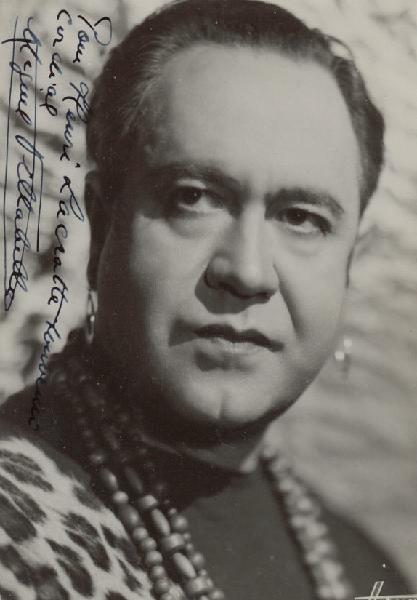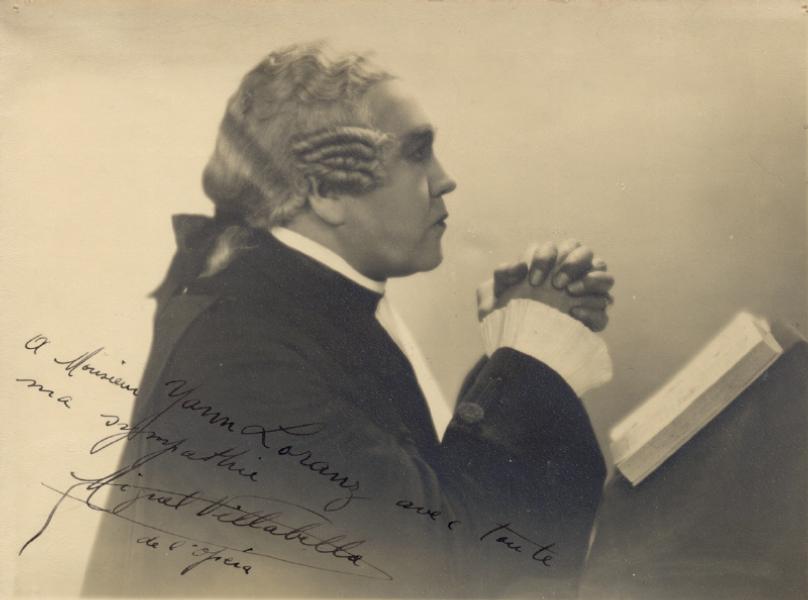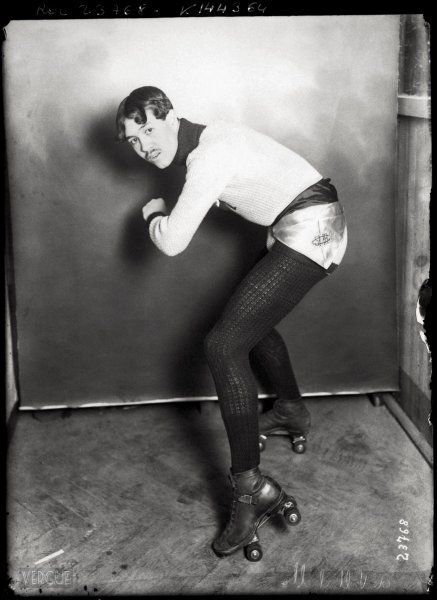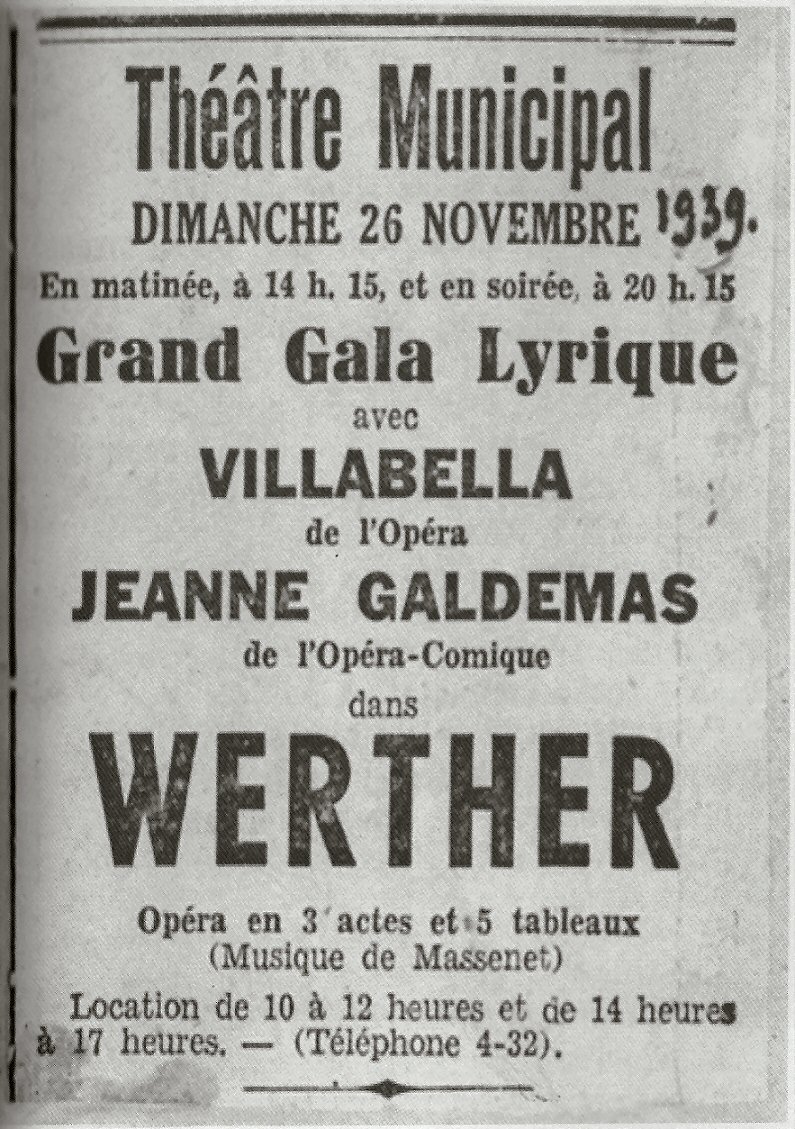Miguel Villabella
First, he became a competitive roller skater, and in 1912 set a new world record on traditional roller skates: 28.766 kilometers in one hour.
Then he pursued his other passion, and studied voice – with nobody less than Lucien Fugère, whom he had met by chance, and later
with the well-known teacher Jacques Isnardon. Villabella made his debut in concert in San Sebastián in 1917, and on stage the following
year, as Cavaradossi in Poitiers.
In 1920, he arrived at the Opéra-Comique in Paris – again in Tosca, but this time as Spoletta: the Opéra-Comique
only would employ him as a comprimario, for the time being. Not for long... Villabella became one of the foremost tenors in the history of the
Opéra-Comique, where he remained through the end of his stage career in 1940. From 1928 to 1936, he was also a member of the
Opéra, where his first role was Pinkerton.
Villabella didn't make terribly many guest appearances elsewhere: in Algiers in the 1926/27 season; at the Monnaie in Brussels in 1933; in
Monte Carlo in 1930 and 1936. His schedule in Paris was all the tighter. His repertory went from Ferrando, Don Ottavio (a triumph at the
Opéra in 1934) or Almaviva as far as Gérald and Don José; with a focus, however, on lyrical roles: Massenet's des Grieux,
Georges Brown (his favorite role), Mylio (Le roi d'Ys), Chapelou, Daniel (Le chalet), Zéphoris (Si j'étais
roi), Roméo, Hoffmann, Wilhelm Meister, Nadir, Alfredo, Duca di Mantova, Fortunio... He was in the cast of one world premiere at
the Opéra-Comique: Les unes et les autres by Max d'Ollone (6 November 1922); and of three world premieres at the Opéra:
Persée et Andromède by Jacques Ibert (15 May 1929), Virginie by Alfred Bruneau (6 January 1931), and L'illustre
Fragona by Raoul Laparra (16 February 1931).
He retired from the operatic stage in 1940, and from the concert podium in 1946, then he taught voice in Paris.
Reference 1: Kutsch & Riemens; reference 2: Youtube channel "Dead Tenors' Society"; reference 3
I wish to thank Claude Ribou for the broadside from Cherbourg. I wish to thank Thomas Silverbörg for the recording (Grisélidis). |



